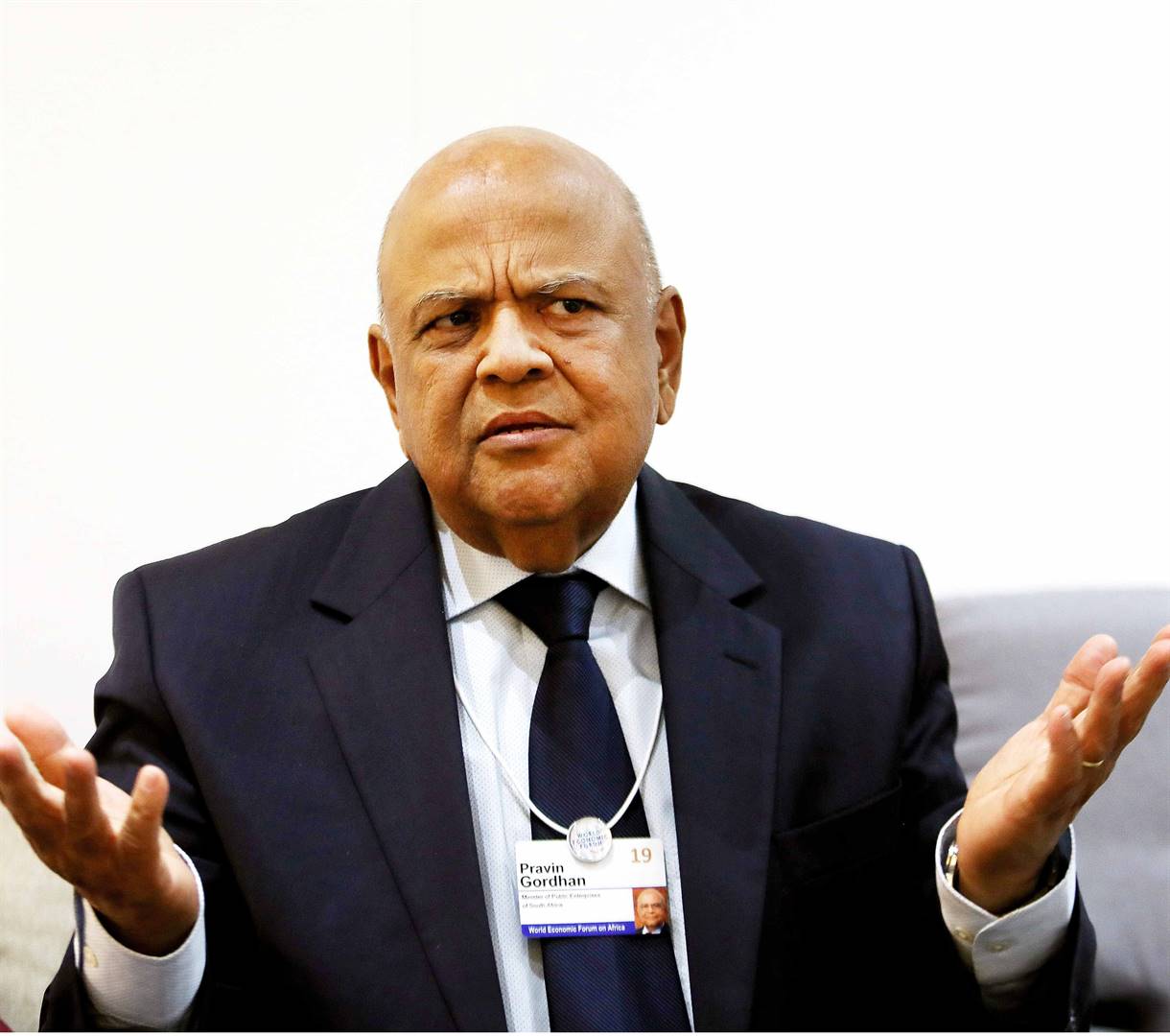
Gordhan says fixing the embattled utility should focus everyone’s attention
The rescue and rebuilding of Eskom is a national project that every role player in South Africa needs to buy into, says Public Enterprises Minister Pravin Gordhan.
In an interview with City Press, Gordhan said he and his team would be engaging different stakeholders about the recently released Eskom Roadmap – a plan to dig the utility out of the current debt mess and reform the electricity supply industry.
“... I think what we require is a recognition by various businesses, communities, unions and ourselves as government, and any other suppliers who are part of this industry, that this is a national project.
“It’s a national priority. And for the next year or two, everybody has to come to the party and make the necessary contributions or sacrifices so that, within the next five years or so, we leave behind a proper legacy for future generations,” said Gordhan.
He added that, “regardless of political party and who is in government, this is a national asset”.
Gordhan reiterated that, as the country’s “dominant supplier” of energy, Eskom was “too big to fail”.
“But it can’t remain the way it is. Eskom is unable to trade its way out of this. So you’ve got to manage its debt on the one hand and return it to operational efficiency at the same time, and restructure it in terms of the future vision for it.
Read: Eskom dilemma: Damned if you do doomed if you don't
“The quicker we move and get some of these things bedded down, the better for creating certainty and confidence in the system.”
The roadmap is premised on fixing Eskom’s finances and operations, fundamentally restructuring the entity and preparing the ground for a much reformed electricity industry that will include new suppliers.
The department of public enterprises is set to kick off the restructuring process by separating the generation, transmission and distribution entities reporting to Eskom Holdings – the mother company.
The transmission entity, the first of these to be established, should be in operation by 2021, according to the paper.
COMPETITION WITHIN A MONOPOLY
Because the three entities will be operating independently, the transmission entity will have the freedom to buy electricity from any supplier and will have its own relationship with independent power producers.
It will even be able to set the Eskom power stations up against each other and make them compete on price.
That will theoretically force power stations, which will be grouped into three clusters, to operate more cost-effectively.
“On the generation side, that sets up a competitive process in a monopoly that produces 95% of our power. You also need to move away from a monopoly mind-set and create a competitive mind-set. That in itself will [help] in creating efficiencies. So even within the public sector, you can set up competition,” said Gordhan.
The separation of the entities and the creation of internal competition will improve transparency about how each unit is run and how profitable it is.
“Ideally, what you want in a business is that, if we are representing a power station, you want to know for each of us what our customer’s expenditure is. Are you running a profitable power plant or are you running a power plant that has frequent breakdowns because you are negligent in terms of your operations management? Right now, you can’t say as it is all clumped together. And that transparency leads to better accountability and better management.”
Gordhan said that this model had been successfully used in communist countries such as China and Vietnam, although the implementation time frames had been far longer.
A key element will be getting buy-in from all stakeholders, especially since labour has been vociferous in its criticism of the unbundling plan.
In this respect, consultative structures are being set up so that “key role players can sit together as we shape this journey”.
A key debate that South Africans should be engaging in, says Gordhan, is how to give communities and workers a stake in the “just transition”.
The just transition is the concept of accommodating those who are affected by sustainable development, such as communities near coal mines, mineworkers, the miners themselves and other related industries.
He would like a discussion around communities investing in this transition and becoming shareholders in power plants, and union investment arms taking advantage of the new opportunities.
This, for example, could be achieved by allowing workers and unions to purchase bond issues, which would in turn fund new development and expansion.
This directly allows those involved in the process to have a direct benefit and stake in what is done.
“In that way, you begin to tackle poverty, inequality and acute poverty. So that should be some part of our thinking ... We’ve got to think outside of the box a bit.”
The massive elephant in the room is the R440 billion debt Eskom is sitting with.
A World Bank team has been helping Eskom with models that may help deal with this albatross around its neck.
On the cost-saving side, there were also teams working on ways to cut fat without “human beings becoming the first casualties”.
The changes that are coming will require skills in other areas and levels of electricity provision, such as municipalities and the independent power producers.
“Instead of firing people, you might redeploy them within the broader electricity environment, for example, in municipalities, where technical skills are in short supply,” Gordhan said.
On Monday, Nampak CEO Andre de Ruyter was appointed as the new chief executive of Eskom.
He will assume his duties on January 15, the Ministry of Public Enterprises said.
He replaces former chief Phakamani Hadebe, who stepped down in July, citing health concerns.
Chair Jabu Mabuza stood in as acting CEO.
| |||||||||||||
| |||||||||||||




 Publications
Publications
 Partners
Partners








